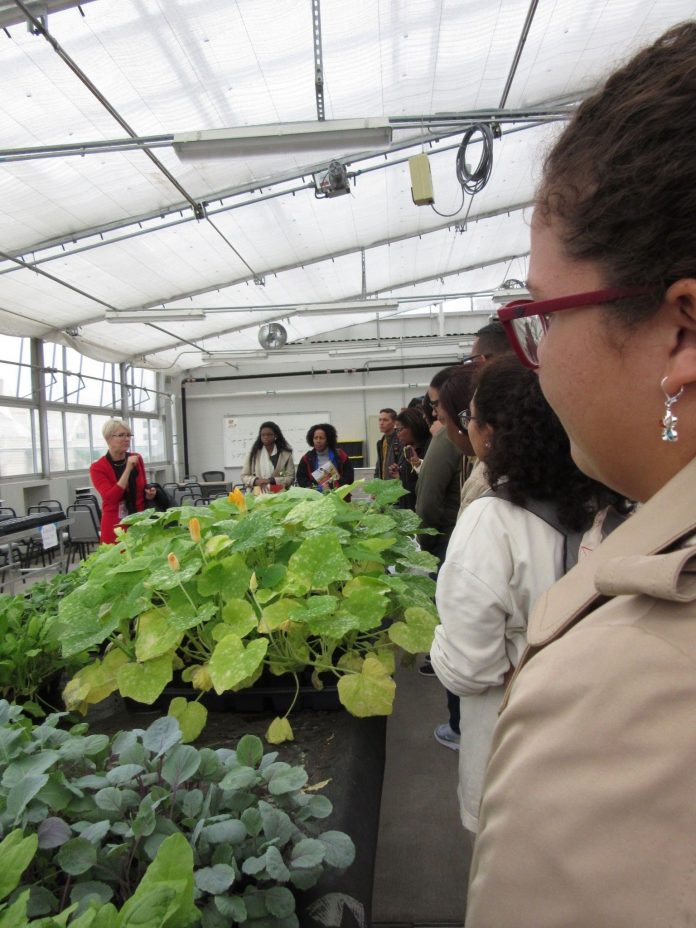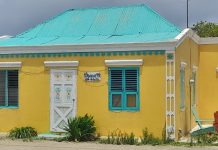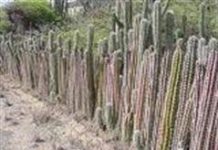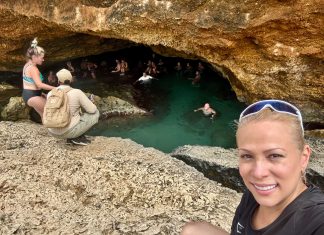On the 18th of October, a group of 22 students departed from Aruba to Washington D.C., capital of the United States of America. The program Organization, Governance and Management (OGM) at the University of Aruba offers students the opportunity to participate in this biennial educational excursion. As students, we had the tremendous opportunity to visit various governmental offices, organizations, museums, memorials, and the University of the District of Columbia (UDC). Our highlights, in particular, include the visits to UDC, the UDC Firebird Research Farm, and the Inter-American Development Bank (IDB).
The visits to UDC and the Firebird Research Farm gave us insight on how current and future communities can play their part in creating sustainable communities. As part of the College of Agriculture, Urban Sustainability & Environmental Sciences (CAUSES), the farm conducts research on the strategic use of agriculture and sustainability in urban areas. The fact that Aruba, as a small island, imports most of its food makes us susceptible to food insecurity. In fact, a few goals of CAUSES is to improve food security and safety, expand alternative energy solutions, and mitigate climate change. We found these goals to be very relatable for us as islanders. The farm researches different methods of sustainably grown vegetables, such as aquaponics and hydroponics. Aquaponics uses fish and their waste as plant fertilizer while the water is filtered and reused. Hydroponics is the use of water rather than soil to grow vegetables. Although the methods do have both pros and cons, students were fascinated to learn about these farming options. We found hydroponics to be an attractive method as Aruba’s landscape is very desert-like without much arable land, and methods like these can allow us to grow organic food and increase our food security. Much of the farm is powered by solar energy, a resource that we in the Caribbean need to make more use of to play our part in mitigating climate change.
At UDC we had the opportunity of getting a lecture and tour regarding sustainability from Dr. Sabine O’Hara, Dean and Director of Land-grant Programs for CAUSES. We were asked questions as to how we can harvest more with a limited amount of space. We were reminded to be conscious of the food we eat and throw away. UDC focuses on how urban spaces, such as rooftops, can be converted and used to grow crops instead of wasted space. We were shown how the CAUSES building was reinforced to support the weight of the rooftop garden, demonstrating that there are solutions to problems such as lack of space.
Moreover, at the Inter-American Development Bank (IDB), we received a presentation by Björn Kuil, who explained that IDB helps countries invest in various areas for the future. As the Dutch representative and Senior Counselor in the Board of Directors, he explained the negative effects of countries not having the necessary resources for sustainable development. The bank aims to improve social inclusion and equality, productivity and innovation, economic integration, gender equality and diversity, climate change and environmental sustainability.
The excursion gave us the chance to make new friends, learn more about the history and other cultures through visits to museums and memorials, such as the Library of Congress, National Museum of African-American History and Culture, the Holocaust Memorial Museum, and National Museum of American History. Most importantly, the visit to Washington D.C. proved to be educational and stimulating for us as OGM students.
We find the importance of sustainability at present and in the future to be a topic that Aruba has to acknowledge and promote. As students and future young professionals, we hope to do as much as we can to support those working for a better community. q

















